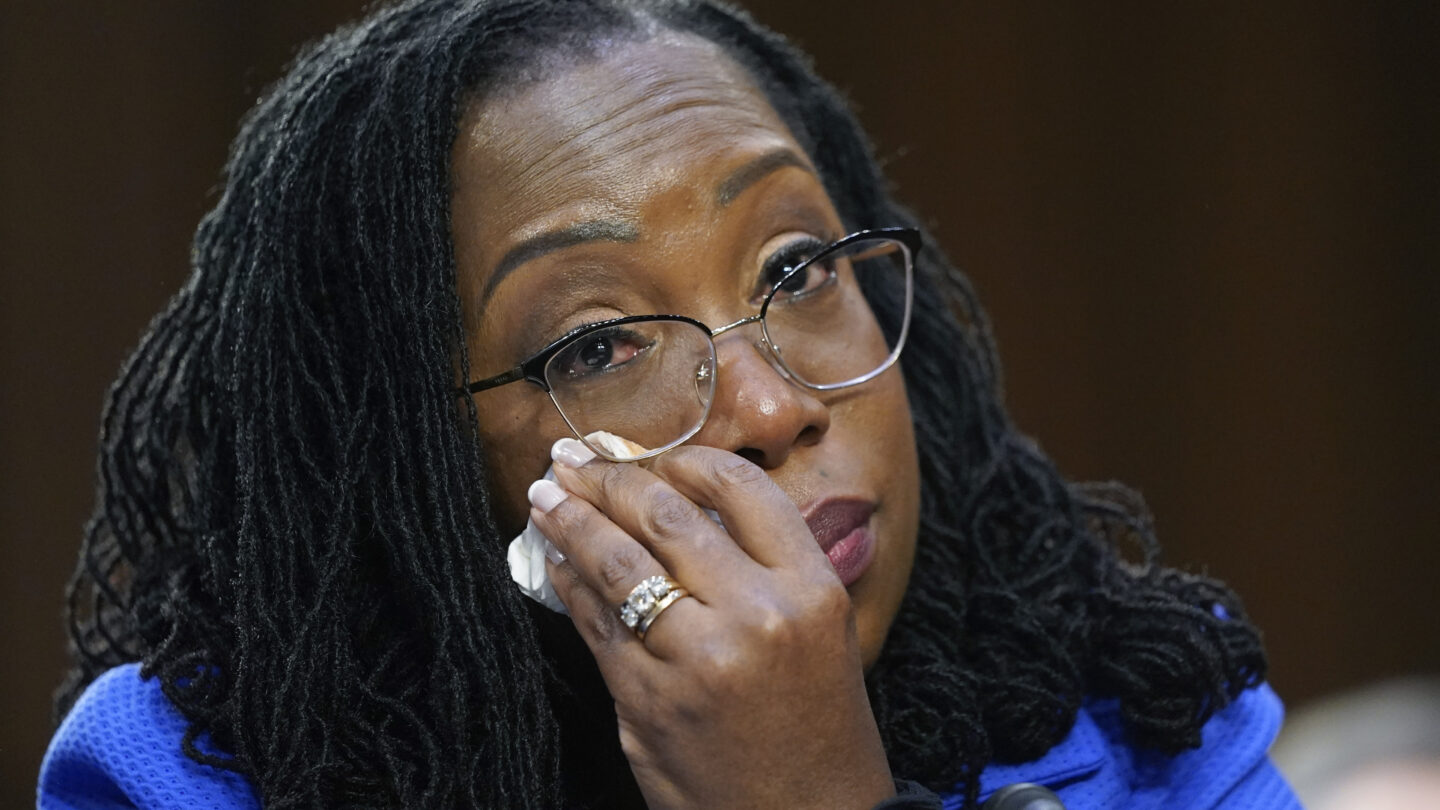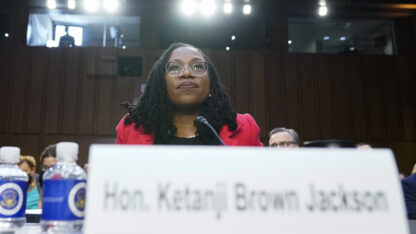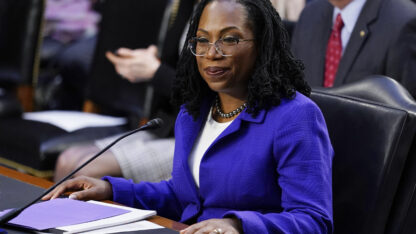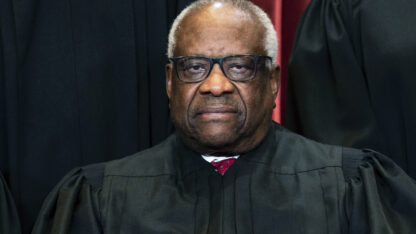“O, let America be America again–
The land that never has been yet—
And yet must be—the land where every man is free.”
That line comes from Langston Hughes’ poem “Let America Be America Again,” first published in Esquire in 1936. It’s a long poem (which you can read in full here), that captures the wide swath of feelings from members of the under class begging America to fulfill its stated promises. It was deeply relevant then, and still is today — as evidenced by Sen. Cory Booker yesterday quoting the poem in support of Supreme Court nominee Kentaji Brown Jackson during her second day of confirmation hearings.
The poem is a clear-eyed look at America’s treatment people who were Black, Indigenous, poor, and who were “Tangled in that ancient endless chain/ Of profit, power, gain, of grab the land!”
According to Arnold Rampersad’s biography, “The Life of Langston Hughes,” Hughes wrote it after being crushed by the experience of putting on a production of his play, “Mulatto.” The show’s producer, Martin Jones, significantly changed Hughes’ original work, including adding a rape scene. Critics panned the play for lacking merit and for its treatment of interracial relationships (Rampersad calls it “a harrowing orchestration of Hughes’s prophetic fear that the great house of America would be brought down by racial bigotry”).
After Hughes was unable to either convince Jones to restore his original work, or reach his agent, Hughes got on a train from New York City to Oberlin, and started writing.
Rampersad writes that Hughes was “fairly sick with unspoken anger,” and “gloomy in the interior of the moving train,” he turned to verse to capture his pain.
The poem is angry and frustrated, but not resigned. Hughes writes about living in the country in spite of it all.
“Sure, call me any ugly name you choose—
The steel of freedom does not stain.
From those who live like leeches on the people’s lives,
We must take back our land again,
America!”
Booker isn’t the first politician to use the poem. John Kerry tried it on as a campaign slogan in 2004. But because the poem is so unsparing, it does resist a certain amount of co-opting. As the poet Nikki Finney told NPR in 2012, you can’t just slap the title on your website and call it a day (or read a short article about it either). “You have to come into the entire notion of what he’s talking about as a poet,” she said.
“Because the bravery that he’s asking us to wear, the courage he’s asking us to hold onto is in every line, every stanza.”
Copyright 2022 NPR. To see more, visit https://www.npr.org.
9(MDAxODM0MDY4MDEyMTY4NDA3MzI3YjkzMw004))

9(MDAxODM0MDY4MDEyMTY4NDA3MzI3YjkzMw004))








